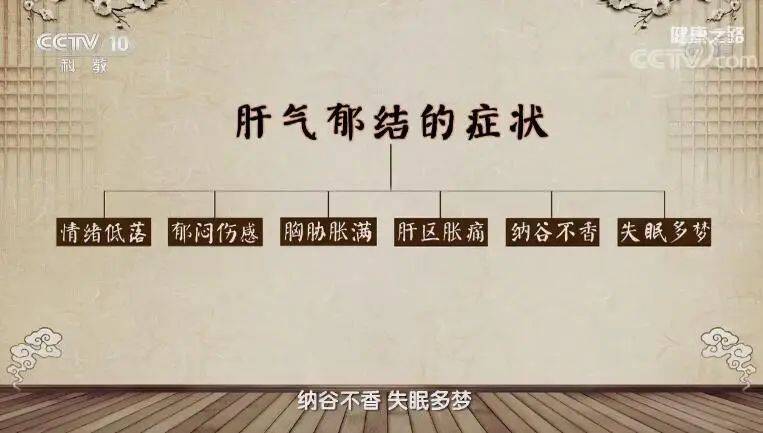Hundreds of birds sing together, painting a magnificent picture of prosperity.
In the modern fast-paced life, depression is like a shadow, quietly shrouding the souls of many. However, within the wisdom of Traditional Chinese Medicine (TCM), we may find a glimmer of light to dispel this shadow. TCM, with its unique theories and methods, offers a new perspective for understanding and treating depression. Let us enter the world of TCM together and explore the mysteries and solutions of depression.
1. Liver Qi Stagnation: The Knot of Emotions
TCM believes that liver Qi stagnation is one of the common causes of depression.
When stress and worries in life remain unresolved for a long time, liver Qi easily becomes obstructed. At this time, a person’s emotions can become low and suppressed, with a feeling of fullness and pain in the chest and rib area, and women may also experience symptoms such as irregular menstruation.
In daily life, we must learn to regulate our emotions and maintain a cheerful disposition. Engaging in appropriate exercise, such as walking or yoga, can promote the circulation of Qi and blood, alleviating the symptoms of liver Qi stagnation. Additionally, confiding in close friends and relatives is also an effective way to release internal pressure.
TCM treats liver Qi stagnation-related depression by often using methods to soothe the liver and regulate Qi. Herbal formulas such as Chai Hu Shu Gan San can help disperse liver Qi and restore normal Qi circulation. At the same time, combining acupuncture treatment, which stimulates relevant acupoints like Tai Chong and Qi Men, can also help soothe the liver and relieve depression.
2. Deficiency of Heart and Spleen: Mental Fatigue
Deficiency of both the heart and spleen is also an important factor leading to depression. Excessive thinking, fatigue, or irregular eating habits may damage the heart and spleen. The heart governs the spirit, while the spleen is responsible for transformation and transportation; when the functions of the heart and spleen are disordered, a person’s mental state will be affected, leading to symptoms such as insomnia, excessive dreaming, forgetfulness, loss of appetite, and fatigue.
For patients with heart and spleen deficiency-type depression, first, attention should be paid to rest to ensure adequate sleep. In terms of diet, it is advisable to consume foods that nourish the spleen and heart, such as jujubes, longans, and Chinese yam.
TCM treatment often focuses on nourishing the spleen and heart, and tonifying Qi and blood. Gui Pi Decoction is a common formula used to nourish the heart and spleen, replenish Qi and blood, provide nourishment to the spirit, and restore energy. Additionally, massaging acupoints such as Nei Guan and Shen Men can help calm the mind and improve depressive symptoms.
3. Phlegm and Qi Stagnation: The Shadow Within
TCM holds that phlegm and Qi stagnation is also a manifestation of depression. Accumulation of phlegm and dampness in the body, intertwined with Qi, obstructs the circulation of Qi and blood and affects emotional well-being. Patients often present symptoms such as foreign body sensation in the throat, chest congestion, and dizziness.
To improve phlegm and Qi stagnation, one needs to pay attention to a light diet and avoid rich, greasy, raw, and cold foods. At the same time, increasing physical activity is essential to promote the discharge of phlegm and dampness.
In terms of TCM treatment, common formulas include Ban Xia Hou Po Tang, which has the function of moving Qi, dispersing accumulations, and resolving phlegm. By regulating the body’s phlegm and Qi, one can restore clarity and comfort to both body and mind.
END
Harmony in Health TCM Clinic


